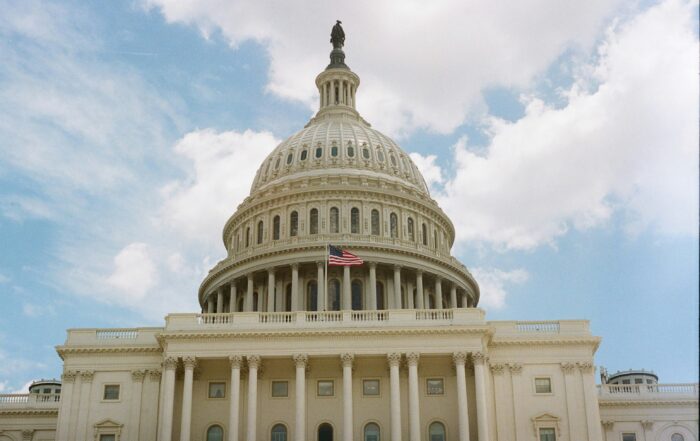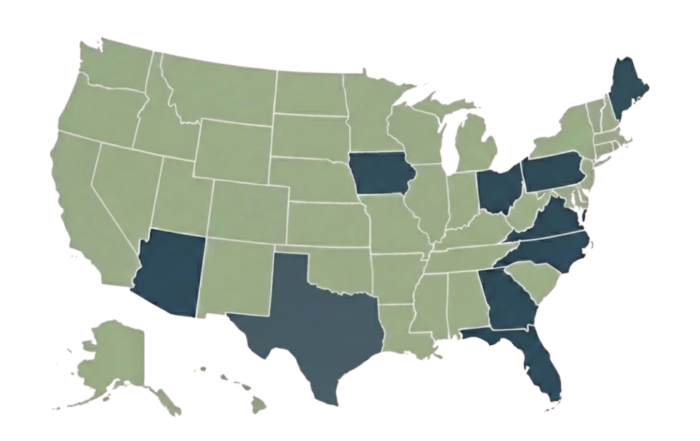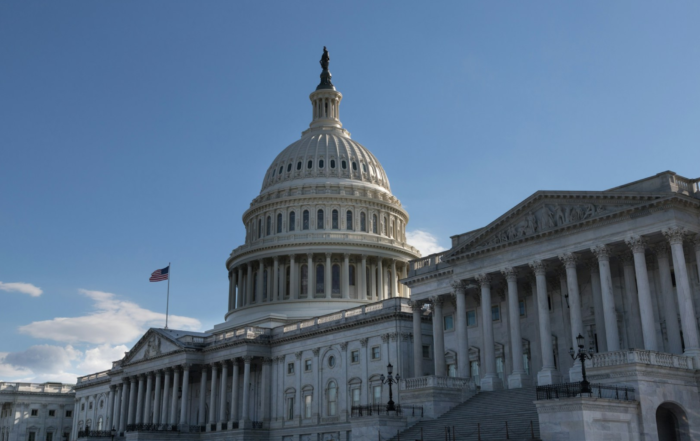State and local elections often decide whether clean energy moves forward—or gets blocked. That’s why Caroline Spears started Climate Cabinet: to help pro-climate candidates win overlooked races that carry big climate stakes. Today we’re featuring the visionary behind Climate Cabinet, where she serves as the founder and executive director.
Know someone who should be featured? Email us: info@echocomms.com.
About Caroline: Caroline Spears is the founder and executive director of Climate Cabinet, which helps climate champions run, win, and legislate on climate. Caroline has a B.S. and M.S. in Atmosphere and Energy Engineering from Stanford University and has been featured on Forbes 30 Under 30, NBC, and Volts.
We spoke with Caroline over email last week:
How did you get into the climate world and end up starting Climate Cabinet?
Caroline Spears: I started by working as an analyst for a solar company. But it quickly became clear to me that there was a problem that technology alone could not solve. Why did Massachusetts have more solar jobs than Arizona? How was it that one policy in Montana could effectively wipe out the possibility of producing solar energy for the entire state?
The answer was simple: politics.
In a world with aggressive lobbying by polluting industries, it’s not enough to produce clean energy that would lower costs. We need a strategy to counteract their influence at the state and local level.
Five years later, we’ve grown—but Climate Cabinet’s work still remains focused on that core goal. And we’re making real progress. From building some of the largest solar farms in the Midwest to protecting electric vehicle standards in Virginia, candidates endorsed by Climate Cabinet have been walking the walk all across the country.
What is the biggest challenge and/or opportunity facing climate advocates, and how is Climate Cabinet helping?
CS: With federal headwinds, it can be hard to know where to start to create opportunities at the state and local level. Here’s a wild stat—there are over 500,000 elected offices across America. That’s why Climate Cabinet uses data science and a team of on-the-ground experts to find critical opportunities for climate action. Every year, there are elections for city councils, county commissions, and state-level offices whose outcomes will determine the future of the clean energy economy for communities in every corner of the country.
For instance, a utility company with a coal-powered plant was trying to strong-arm the Naperville City Council into extending a contract until 2050. But because pro-climate candidates just swept the recent city council elections, that effort will likely fail. In Naperville, voters supported pro-climate candidates who valued families and their community.
What’s the biggest risk you’ve ever taken?
CS: Quitting my job to build Climate Cabinet was probably one of the biggest leaps of faith I’ve taken. I had a master’ps degree and was working in solar. But I also understood that all of the work people were doing to develop renewable technology would be limited until we could level the playing field in states across the country.
Climate Cabinet started out as a volunteer project in my living room, but I knew it would need more work to get fully off the ground. So after a lot of reflection, I eventually decided to work full time on this endeavor.
What’s something about you that might surprise people?
CS: Long before I became involved in Climate Cabinet, I studied butterflies in Taiwan, which has the highest species density of butterflies in the world
Know someone who should be featured? Email us: info@echocomms.com.
Check out our recent insights and conversations:
Sign up for our newsletter
Receive updates on our work, industry news, and more.




